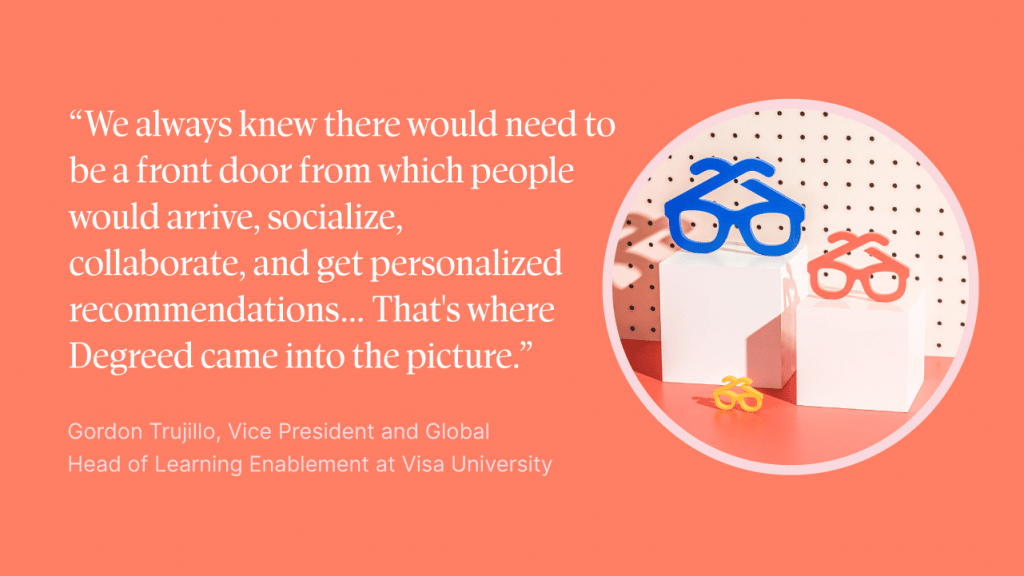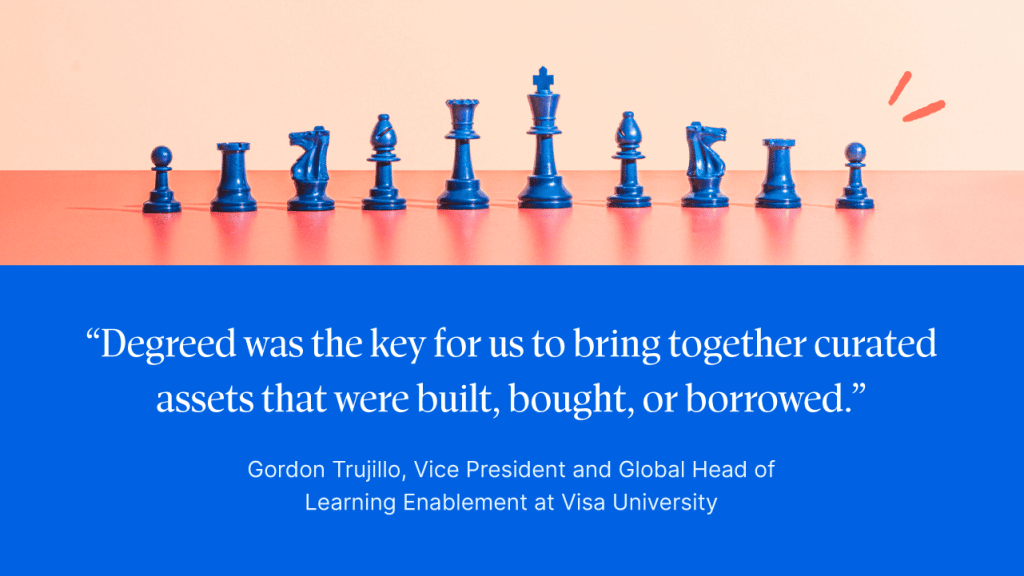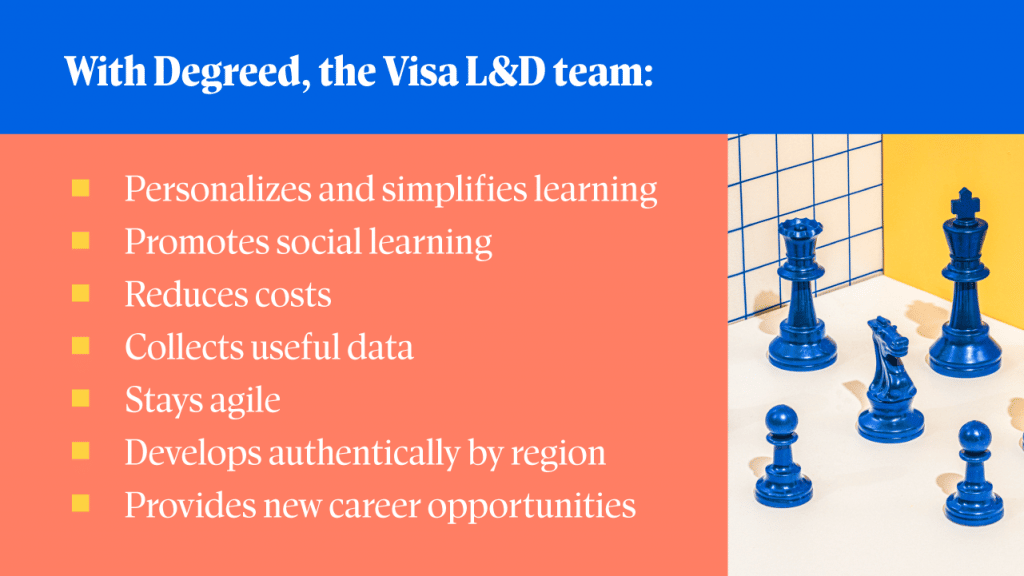When the Visa L&D team reimagined workforce development, it wanted to create “an organization that learns versus a learning organization.”
The nuance captured in that short phrase gets to the heart of what it means to have a worker-driven learning culture. For the credit card giant specifically, it meant making learning more intuitive and a larger part of people’s daily routines. Visa wanted to align learning more closely with ever-emerging business needs, encourage lifelong learning, adapt learning programs by region, and position learning as a company priority.
Central to these efforts was the creation of a comprehensive learning technology ecosystem through Visa University, which has offered all 20,000 Visa employees globally a wide range of learning experiences.
But like any organization, Visa University experienced growing pains. The learning experience platform (LXP) the company had at the time was difficult to search, and people used it less and less. Because the LXP didn’t provide the L&D team efficient ways to curate content, people were overwhelmed with options and struggled to find the relevant resources they needed.
“We always knew there would need to be a front door from which people would arrive, socialize, collaborate, and get personalized recommendations around different ways they could skill up, whether it be for their role or for something else they were interested in, or because somebody shared something with them,” said Gordon Trujillo, Vice President and Global Head of Learning Enablement at Visa University. “That’s where Degreed came into the picture.”

Connecting Best-of-Breed Solutions
A hallmark of the Visa approach is incorporating into its digital learning ecosystem — through APIs and technical integrations — a wide range of technologies that the L&D team deems best of breed.
For example, “We had multiple investments for content that were disparate all across the ecosystem,” Trujillo said, adding some business units were essentially duplicating the efforts of others, inefficiently creating similar content.
Launched at Visa in March 2020, Degreed helped to drive a learning culture that tied it all together, Trujillo said. “Now the business has a better handle on driving a unified experience across everybody at the company… Degreed was the key for us to bring together curated assets that were built, bought, or borrowed.”

New Ways of Working
It didn’t take long for a majority of Visa employees to start using Degreed. Only four months after Visa launched Degreed, 65% had logged on. And the L&D team had already integrated 80,000 assets from which it could curate; with the user data that Degreed generates, the team has more information to help it choose the best sources for its learning plans.
The challenges Visa faced with its prior LXP are a thing of the past. With Degreed, the Visa L&D team:
- Personalizes and simplifies learning by curating content based on each worker’s interests or needs, while at the same time driving a more unified user experience.
- Promotes social learning by enabling content sharing among employees.
- Reduces costs by supporting virtual learning; classrooms are expensive to create and maintain, and difficult to reach for some workers, a dynamic exacerbated by COVID-19.
- Collects useful data by integrating Degreed with a human resources information system (HRIS) to identify growing topics of interest — regionally and among individual business units.
- Stays agile by using data from search queries, skill levels, and other measurements to curate, personalize, and more quickly deliver materials.
- Develops authentically by giving workers in different regions around the world unique learning experiences important to their cultures and locations (using the platform to find content that’s centrally curated and then recontextualizing it).
- Provides new career opportunities by helping upskill people for new projects or positions. This motivational piece helps boost engagement in the overall learning culture.

A Learning Culture Enhanced
Degreed helps Visa encourage workers to be continuous learners by providing a consumer-grade experience that people want to make a part of their daily routines.
“This is the first time I’ve worked at a company that has a learning presence that, unprompted, has had employees say, ‘Benefits at Visa include dental, medical, PTO, and Visa University,’” Kapila said. “It is deeply embedded. It’s such a simple thing to say, but it’s so powerful.
“With our Degreed launch, that sentiment has ballooned and become even more of the voice of our people.”
A physical campus has its benefits, but it’s ultimately a finite experience. “With the digital campus, it really becomes about what I, in my role, want to learn at any given moment and my relationship with that topic, and my continued evolution,” Kapila said. “Virtual experiences, when done right, live on. It’s incredibly powerful, and something I hear from our learners a lot.”
Want to read more articles about learning cultures, upskilling efforts, career mobility strategies, and more? Check out our Success Stories page to learn what our most innovative clients are doing at their organizations.
